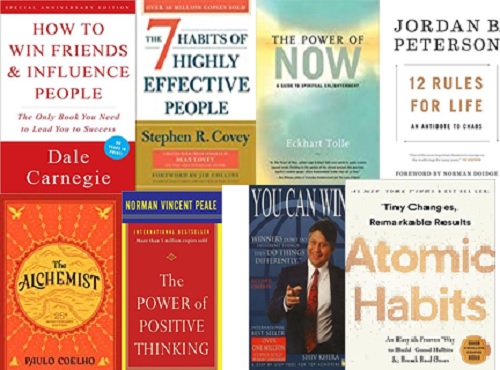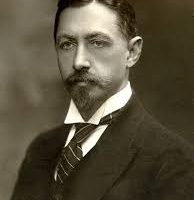
BY KFLEEYESUS ABEBE
Reading regardless of genres or types is what I have been focused on since literature class. I was taught that I should be all-rounded to be good in literature. Indeed, reading anything is essential to widen ones’ knowledge horizon, understanding, or experience. With this understanding I was able to read a range of books from different genres of literature. I have also read some autobiographies, memoirs, history books and other kinds of books. But I haven’t read any self-help books for long time. Not even books of Dale Carnegie- the most popular self-help book writer and widely read by Ethiopians.
The first book I read and which lately I knew to be on self-help category is The Alchemist by Paulo Coelho. The Alchemist is a beautiful novel and also a self-help book encouraging readers to pursue their dreams. It extracts some parables and examples from the Bible to illustrate its points and to show that destiny awaits the reader if she/he pursues it with great zeal. It says: “When you want something, all the universe unites to help you achieve it.” Also; “The secret of life, though, is to fall seven times and to get up eight times” mainly comprises the book’s content. A blog by the name “four minutes books” summarizes the book as this: “a boy named Santiago embarks on a journey seeking treasure in the Egyptian pyramids after having a recurring dream about it and on the way meets mentors, falls in love, and most importantly, learns the true importance of who he is and how to improve himself and focus on what really matters in life.”
Norman Vincent Peale (PhD) also got my attention with his book “The Power of Positive Thinking.” He attempted people around the world to achieve fulfillment in their lives through faith and inspiration. While reading it, I was in such positive vibe feeling power, energy and optimism.
“You Can Win” by Shiv Khera is also a beautiful and impactful book I ever read. But the title is a cliché that may push back readers who are dispirited by empty motivational speeches. If not for my friend’s recommendation, I wouldn’t have read it. “ You can Win” illustrates its ideas through different stories from Aesop fables, the Bible, to real sport and business incidents. Through the conversation of socrates and a young man who is curious to know the secret of success, the author invites the reader to entertain “have burning desire” in order to succeed in life.
I am currently reading the “The Power of Now” by Eckhart Tolle. The power of Now isn’t just great. It is astounding! I was wondering how old he might be to have this wisedom, what teaching he got or what experiment he did to come with this unique understanding of life. Eckhart in this book shows how our obsesssion of thinking is inhibiting us from appreciating and living life to its fullest. Many people are prisoners of the past or the future. The present or the now however is not lived or given focus though it is what we have currently.
The author believes that we are used by our mind which is excessively thinking and draining our power and focus. “The mind is a superb instrument if used rightly. Used wrongly, however, it becomes very destructive. To put it more accurately, it is not so much that you use your mind wrongly – you usually don’t use it at all. It uses you.” You may ask how could we control or be in charge of our mind. As Eckhart, it begins from watching, observing what your are thinking.
Be present as the watcher of your mind – of your thoughts and emotions as well as your reactions in various situations. Be at least as interested in your reactions as in the situation or person that causes you to react. Notice also how often your attention is in the past or future. Don’t judge or analyze what you observe. Watch the thought, feel the emotion and observe the reaction. Don’t make a personal problem out of them. You will then feel something more powerful than any of those things that you observe: the still, observing presence itself behind the content of your mind, the silent watcher.”
Eckhart has also put a timely advice in this book saying association of any kind is an illusssion or egoic identification. “The most common ego identifications have to do with possessions, the work you do, social status and recognition, knowledge and education, physical appearance, special abilities, relationships, personal and family history, belief systems, and often also political, nationalistic, racial, religious, and other collective identifications. None of these is you.”
Self-help books are in general beautiful in language, and provide experience and vital advices to their audience. I, as one reader of such books for sometime, confirm that they are interesting and valuable. Like writer of “You can Win” Shiv Khera said, “Motivation is like fire unless you keep adding fuel to it, it dies,” reading similar books and applying the rules is essential to get ultimate benefits of them. Many of the self-help books have christian influence. For instance, in order to build a can do mentality, Peale suggest to recite bible verse: “I can do all things through Christ who gives me strength.”
Some of the self-help books however may not be compatible or hard to practice in Ethiopia. These days self-help books in local languages are being published. Expecting their setting and context to be Ethiopian, they could solve this incompatibility issue of western self-help books.
Matt D’Avella claims that he had read 100 self-help books. He says he learned so much from these books, and the lessons might change the way readers look at self-help. “In the book How to Win Friends and Influence People” by Dale Carnegie, Dale quotes a British philosopher, Herbert Spencer, who said the great aim of education is not knowledge, but action. And this is an action book. And this lesson from over 100 years ago is one of the most important lessons I’ve learned from reading over 100 self-help books. Taking action no matter how small is the key to making progress. You can devour all the self-help books in the world, but if you’re not actually implementing the concepts you’re learning, you may as well be reading fiction.”
But there are opponents of self-books criticizing it for simplifying situations, being addictive and not culturally fitting to non-westerner readers. James Jani says authors with their excellent language skills, expertise in psychology and experience exploit vulnerability of the readers. “The self-help world can pull you under a massive illusion. The illusion of progress! After reading that book, you feel accomplished. After attending that seminar, you feel accomplished. After watching that self-help video, you feel the same.
You feel like you’ve achieved something great and have done something really productive. That motivation lingers in your system urging you to buy the next book, attend the next seminar watch the next video. It is only when you take a second chance to pause and reflect when you realize nothing has changed.” James also says the readers are being taken as consumers of products so different materials and programs are being designed to get their attention and get profit from them.
He points out self-help books have become huge business generating means $11.3 billion. Market data estimates that the U.S. self-improvement market was worth $11.6 billion in 2019 and that it contracted by 10% to $10.5 billion in 2020. Market data forecasts a 7.7% rebound in 2021, to $11.6 billion, and forecasts 6.0% average annual growth to $14.0 billion by 2025.
The addictive nature of the books also compels the reader to purchase and read more books instead of taking action on his life. Some readers say they have wasted their time and money. The bottom line is readers should read these kinds of books with caution. They shouldn’t take everything forgranted. They have to check applicability to their situation. When they find intersting ideas or rules, they should also strive to inculcate them into their lives. Otherwise, it would be nothing but a waste of time
The Ethiopian Herald December 14/2022

